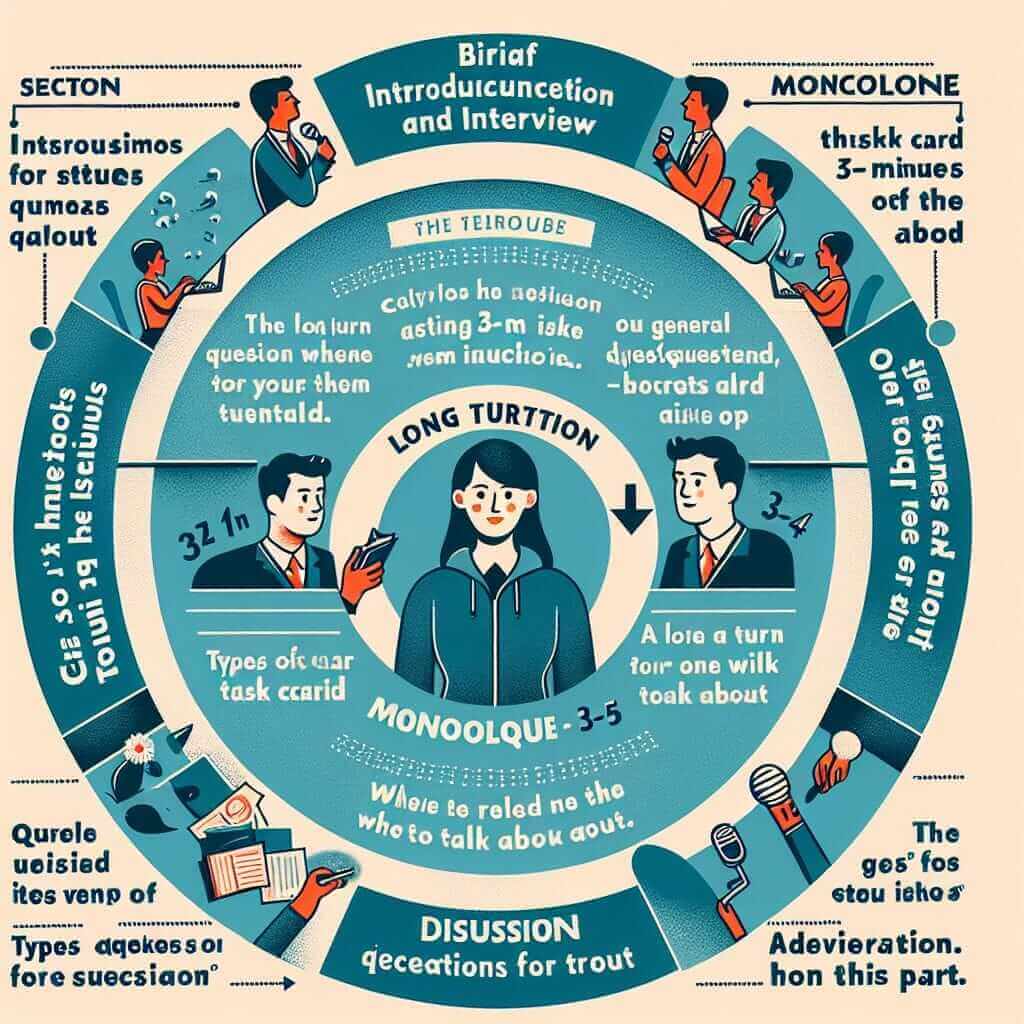As an IELTS instructor with over two decades of experience, I often encounter students seeking a magic “how to crack the IELTS speaking test pdf” solution. While I understand the desire for a quick fix, the truth is achieving a high score in the IELTS Speaking test requires dedicated effort and a strategic approach. There’s no magic PDF, but there are proven methods and insights I’m happy to share to guide you on your path to success.
Understanding the IELTS Speaking Test
The IELTS Speaking test is a one-on-one assessment of your English communication abilities, evaluating your fluency, vocabulary, grammar, and pronunciation. It’s crucial to remember that the examiners aren’t looking for perfection; they are assessing how effectively you can communicate your ideas in English.

Effective Strategies for IELTS Speaking Success
Let’s delve into actionable steps you can take to improve your performance:
1. Embrace Fluency and Coherence
- Speak Naturally: Don’t focus on using complex words just for the sake of it. Use vocabulary you’re comfortable with and focus on speaking naturally and smoothly.
- Connect Ideas: Use linking words and phrases like “however,” “moreover,” “in addition to” to create smooth transitions between your ideas.
- Practice Regularly: Engage in conversations with English speakers or fellow learners as often as possible. Record yourself speaking to identify areas for improvement.
2. Expand Your Lexical Resource
- Variety is Key: Demonstrate a range of vocabulary related to various topics likely to appear in the test, such as education, technology, environment, and society.
- Paraphrase: If you can’t think of a specific word, find different ways to express the same idea using synonyms or related phrases.
- Learn Collocations: Familiarize yourself with common word combinations used in English (e.g., “heavy rain,” “make a decision”).
3. Master Grammar and Accuracy
- Review Tenses: Ensure you understand and can confidently use different verb tenses to discuss past, present, and future events.
- Focus on Accuracy: Pay attention to subject-verb agreement, plural forms, and article usage (a/an/the).
- Seek Feedback: Have a teacher or proficient speaker review your speaking and provide corrections to improve your grammatical accuracy.
4. Refine Your Pronunciation
- Listen Actively: Pay attention to the sounds, rhythm, and intonation of native English speakers. Mimic their pronunciation to improve yours.
- Practice Word Stress: Learn the correct stress patterns for words, as incorrect stress can change the meaning of a word or make it difficult to understand.
- Record and Analyze: Record yourself speaking and listen back to identify any pronunciation errors.
Examples from Real IELTS Speaking Tests
To illustrate these strategies in action, let’s consider some common IELTS Speaking test prompts:
Part 1: (Short Questions)
- “Tell me about your hometown.” Instead of just listing facts, create a vivid description using adjectives and adverbs (e.g., “a bustling city,” “peaceful countryside”).
- “Do you enjoy reading?” Go beyond “yes” or “no.” Explain your preferences, mentioning specific genres or authors you like.
Part 2: (Individual Long Turn)
- “Describe a time you helped someone.” Structure your response clearly, including an introduction, details about the situation, your actions, and the outcome.
Part 3: (Two-Way Discussion)
- “Do you think technology has made our lives easier?” Express your opinion clearly and support it with relevant examples and explanations.
Essential Tips for Success
- Don’t Memorize Answers: The examiners will quickly recognize memorized responses. Focus on developing your communication skills to answer a range of questions.
- Manage Your Anxiety: Take deep breaths and try to relax. Remember, the examiner is there to help you demonstrate your English abilities.
- Use Your Preparation Time Wisely: In Part 2, utilize the one minute to jot down key ideas before you start speaking.
- Don’t Be Afraid to Ask for Clarification: If you don’t understand a question, politely ask the examiner to repeat or rephrase it.
Conclusion
While there’s no single PDF that guarantees a high IELTS Speaking score, consistent effort and strategic preparation are the keys to success. By focusing on fluency, vocabulary, grammar, and pronunciation, and by practicing regularly, you can significantly improve your communication skills and approach the test with confidence. Remember, it’s not about achieving perfection but demonstrating your ability to communicate effectively in English.